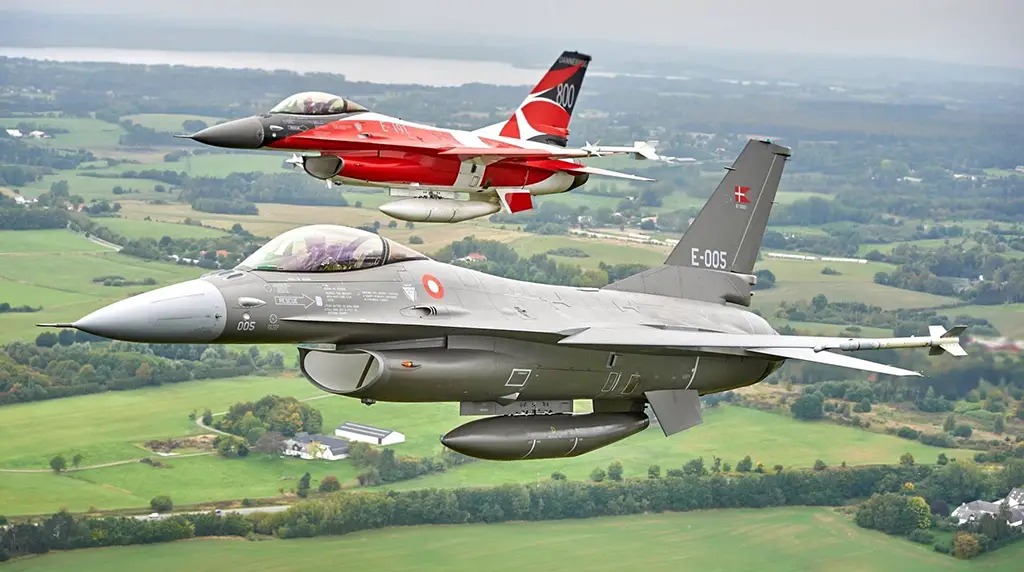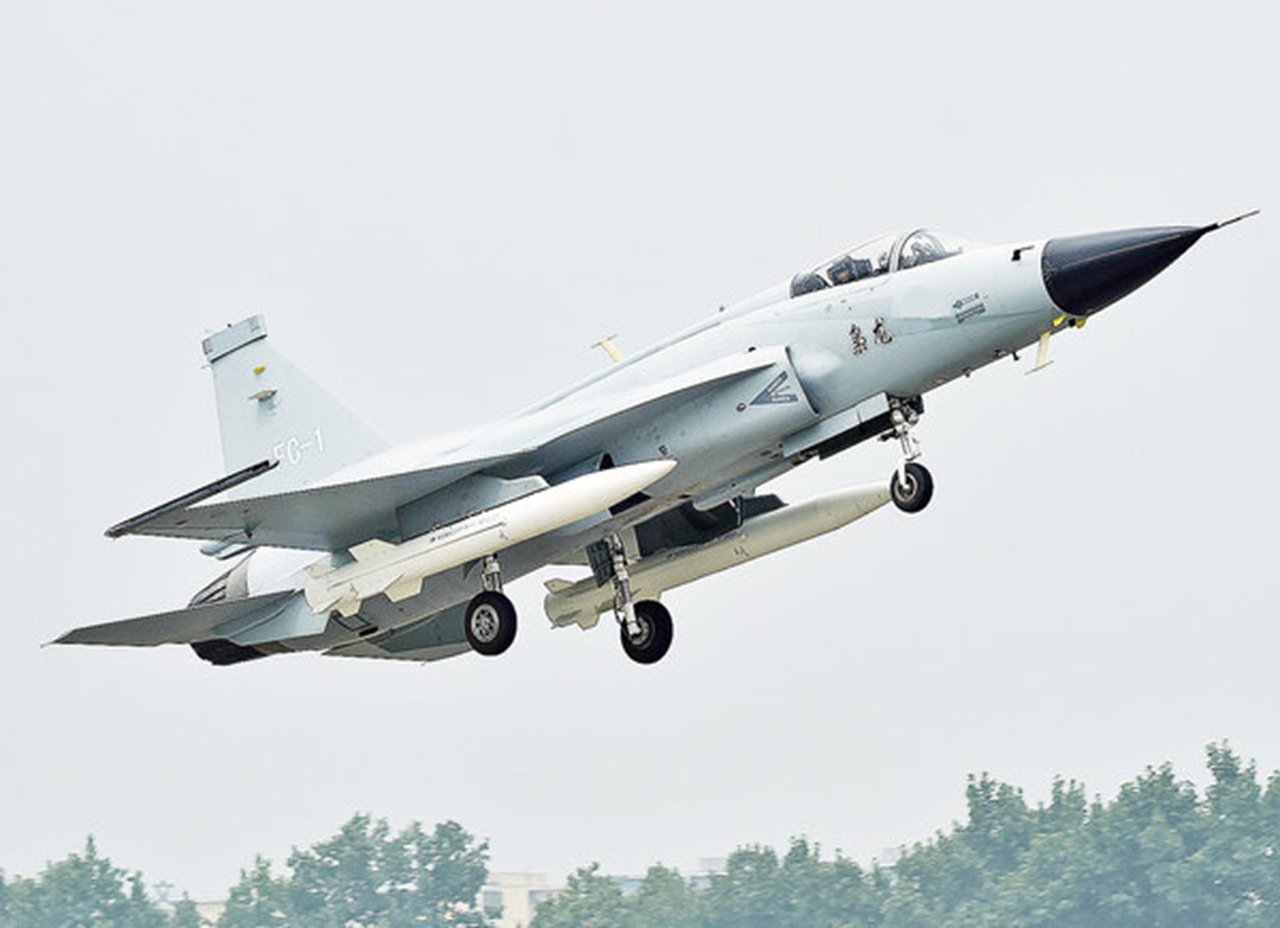Argentina’s newly elected President, Javier Milei, has openly conveyed a less optimistic view on diplomatic ties with China. This stance ‘significantly reduces’ the likelihood of the anticipated deal for Chinese JF-17 jets to be sold to Argentina during his tenure.
China’s J-11 Flanker-L ‘Takes A Toll’ On US Air Force; US Resumes ‘Mil-To-Mil’ Contact With PLA To Deflate Tensions
Following the election of Argentina’s new President, headlines emerged suggesting the potential strain in relations between Buenos Aires and Beijing under his leadership.
Furthermore, Javier Milei’s chief foreign affairs adviser, Diana Mondino, announced a shift in Argentina’s stance toward the association of leading emerging markets, consisting of Brazil, Russia, India, China, and South Africa.
According to Mondino, Buenos Aires would refrain from joining the bloc, citing a lack of perceived benefits, and be willing to reconsider if advantages emerge.
During the election campaign against incumbent finance minister Sergio Massa, the right-wing libertarian Milei had declared his unwillingness to engage in business with communist countries, advocating for the termination of relations with China in favor of aligning with what he referred to as “the civilized side of the world.”
Milei also accused China of financing pro-massa advertisements on YouTube during the campaign. This marks a departure from the outgoing government’s approach, which actively nurtured the relationship with China.
Milei is set to assume the presidency on December 10, raising concerns about the future of Argentina’s economic ties with China, a significant trading partner and the primary export market for agricultural products.
Argentina’s economic ties with China are significant, with China ranking as Argentina’s second-largest trading partner and its primary export market for agricultural products.
Since 2008, Argentina has entered into financing agreements with China totaling US$8.1 billion through nine loan contracts, with a substantial portion directed through the China Development Bank and the Export-Import Bank of China for various projects.
Despite Milei’s critical stance, Chinese authorities view bilateral relations positively and have cautioned the president-elect against severing diplomatic ties, noting the potential for steady progress and economic cooperation.
Yet, Milei and his associates have also declared Argentina’s intention to cease state-to-state trade agreements and secret talks with China.
Uncertainty Surrounds China’s Aspirations To Sell JF-17s To Argentina
Milei’s critical stance towards China poses a potential obstacle in the negotiations for Argentina’s procurement of the China-Pakistan JF-17 fighter jet. This deal, previously hailed as a symbol of increasing collaboration between the two nations, now faces uncertainty.
Argentina’s longstanding endeavor to modernize its aging fighter jet fleet has frequently encountered obstacles, with the UK employing diplomatic pressure to discourage other nations from selling aircraft due to historical disputes.
Previous instances reveal British embargoes impeding Argentina’s efforts to procure the Swedish Saab Gripen and the South Korean FA-50 trainer/light fighter.
When indications arose suggesting Argentina’s potential interest in purchasing Chinese jets, the US, apprehensive about this increasing collaboration, intervened by presenting its F-16 fighter jets as a substitute for the JF-17. In parallel, India also proposed its Tejas aircraft to Buenos Aires.
However, the JF-17 is frequently regarded as an appealing option for Argentina due to its immunity from potential UK vetoing of parts, making it the sole aircraft that aligns with the budgetary constraints of the Argentine Air Force.
Furthermore, China has maintained its position on the Falkland Islands matter, staunchly supporting Argentina’s claim to sovereignty over the region.
Under the outgoing government, Buenos Aires has engaged in discussions with Beijing to procure the JF-17 Block 3, considered Argentina’s preferred choice in its pursuit of military aircraft.
The Block 3 model boasts advanced avionics, flight control systems, an active electronically scanned array (AESA) radar, and a combination of China’s high-performance beyond-visual-range and short-range missiles.
Yet, the dynamics between Argentina and China are poised for a major shift as the newly elected president assumes office on December 10.
The explicit stance against advancing relations with China implies that Argentina might pivot towards considering options such as the US-made F-16 or the Indian-made Tejas for their military aircraft needs.
Speaking to EurAsian Times, Andrei Serbin Pont, International Analyst and president of Argentinean think tank CRIES, also suggested that under the leadership of the new President, the prospective deal to acquire Chinese fighter jets is unlikely to progress.
Pont, a former adviser at the country’s Strategic Affairs Secretariat, explained, “As you may already be aware, the negotiation for the F-16, which is an alternative to the JF-17, is already well advanced with the outgoing government.

This is partly because the Minister of Economy, Massa, the Presidential candidate who just lost against Milei, was particularly interested in advancing that project to strengthen the relationship with the US. The US plays a key role in the IMF and therefore holds crucial importance for Argentina.”
He further said, “We have to see the composition of Milei’s foreign policy and defense teams, but there are clear indications that both are likely to adopt a very pro-Western approach in foreign policy and defense issues.”
“So, the prospects of Chinese fighters will likely be reduced significantly, and the option for buying US-made F-16s will be further strengthened.”
However, he also proposed an alternative scenario, highlighting that there is always a chance that Argentina might refrain from making any purchases due to budget constraints. This possibility should be viewed as only a potential outcome, with the option for the country to delay its procurement budget until the following year.
The F-16s are part of the Denmark Air Force Fleet, and the United States aims to transfer them to Argentina.
The US vehemently opposes the prospect of Chinese fighter jets patrolling the skies of Latin America. This idea is unequivocally unwelcome in Washington, primarily due to the perception that many issues in the region are viewed through intense global power competition.
Consequently, the US government has already authorized Denmark to sell used F-16s to Argentina.

This decision prompted the Biden administration to inform Congress about its plans to endorse the Danish sale. Furthermore, a senior State Department official was reportedly dispatched to Buenos Aires to engage in discussions concerning this issue.
Nonetheless, the prospective purchase will mark a key victory for Argentina’s beleaguered Air Force. The F-16, a more advanced aircraft than the JF-17, would elevate Argentina’s military capabilities to align with its neighboring nations.
Beyond bolstering the Air Force’s effectiveness, acquiring Western equipment carries additional strategic weight.
It will ease tensions between Buenos Aires and Washington, which is especially crucial given Argentina’s current need for support from the United States at the International Monetary Fund.
- Contact the author at ashishmichel(at)gmail.com
- Follow EurAsian Times on Google News




